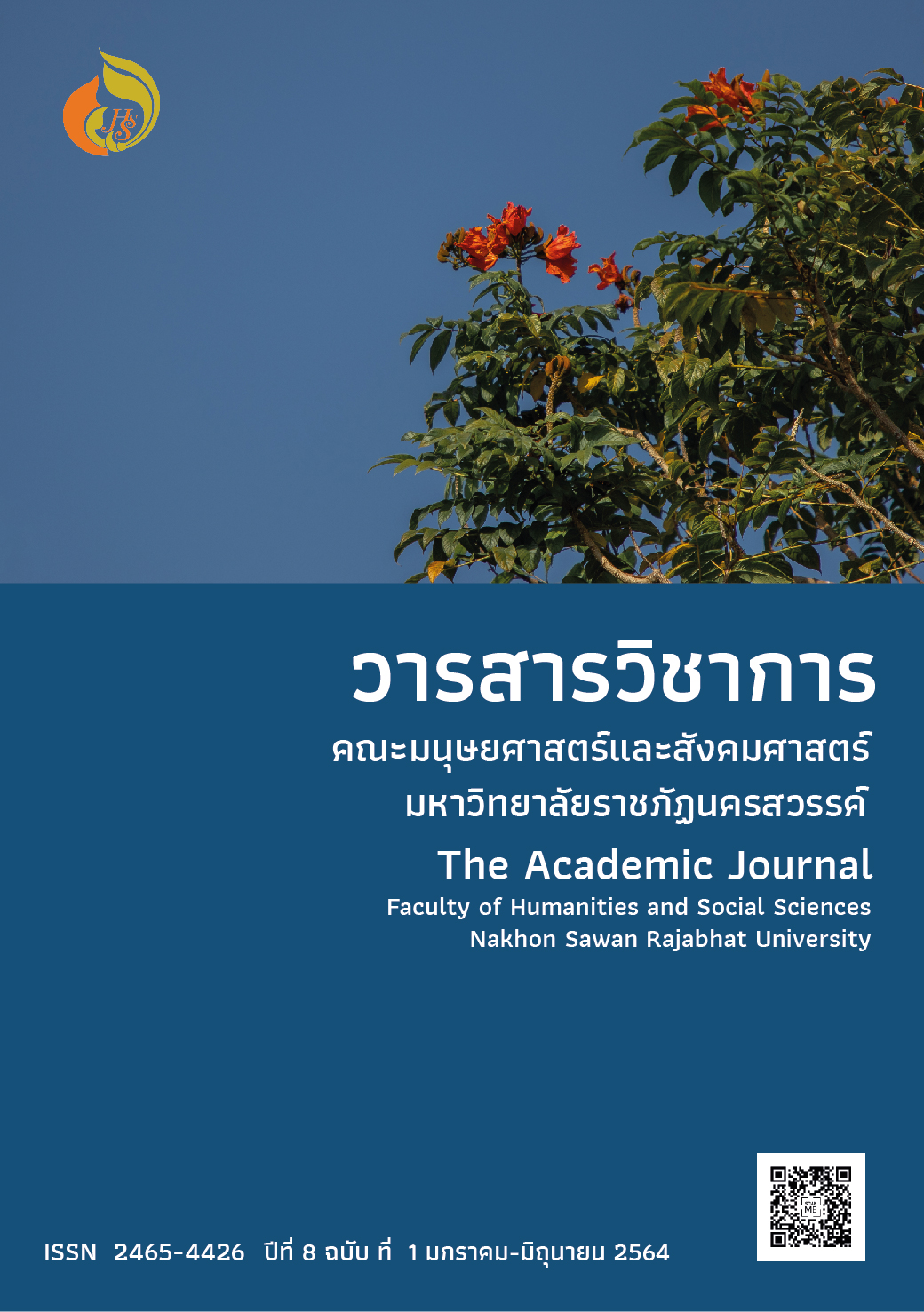The Results of Active Learning with Group-Individual Technique, Numbered Heads Together Technique, Modeling Technique, Singing Technique, Debate Technique, Role-Playing Technique, and Group Discussion Technique on Learning Behavior, Educational Achievement, and Satisfaction with Learning of Thai Tourism Geography Course
Main Article Content
Abstract
This study is experimental research aimed 1) to compare the learning behavior before and after classes of undergraduate students in an elective course arranged with active learning with group- individual technique, numbered heads together technique, modeling technique, singing technique, debate technique, role-playing technique, and group discussion technique, 2) to compare educational achievement in Thai tourism geography course before and after classes of the students having active learning, 3) to compare educational achievement in Thai tourism geography course of the students who had active learning and 60% criteria and 4) to examine satisfaction of the students before and after active learning. The populations in this study were 50 persons who were randomly selected with purposive sampling method. The research instruments included 1) an instruction plan of Thai tourism geography course, 2) a 25-item learning behavior evaluation form, 3) a 20-item test for educational achievement assessment and 4) a 7-item survey form for satisfaction before and after the Thai tourism geography course.
The findings revealed that 1) the learning behavior of the students who had active learning with group individual technique, numbered heads together technique, modeling technique, singing technique, debate technique, role-playing technique, and group discussion technique after classes is higher than before classes with statistical significance at . 05 . 2 ) The educational achievement after classes in Thai tourism geography course of the students who had active learning was higher than before classes with statistical significance at .05. 3) The educational achievement in Thai tourism geography course was higher than 60% criteria with statistical significance at . 05 . 4 ) The students were highly satisfied with active learning in the Thai tourism geography course.
Article Details

This work is licensed under a Creative Commons Attribution-NonCommercial-NoDerivatives 4.0 International License.
References
ชาย โพธิสิตา. (2549). ศาสตร์และศิลป์แห่งการวิจัยเชิงคุณภาพ. กรุงเทพฯ: อมรินทร์พริ้นติ้ง.
ไชยยศ เรืองสุวรรณ. (2553). Active Learning กับการจัดกระบวนการเรียนรู้. สืบค้นเมื่อ 17 กรกฎาคม 2563, จาก https://genedu.kku.ac.th/mainweb/New%20Site2014/activity,
ณรงค์ กาญจนะ. (2553). เทคนิคและทักษะการสอนเบื้องต้น เล่ม 1. พิมพ์ครั้งที่ 2. กรุงเทพฯ: จรัลสนิทวงศ์การพิมพ์.
นรรัชต์ ฝันเชียร. (2563). เทคนิคการสอนแบบการแสดงบทบาทสมมติ. สืบค้นเมื่อ 17 กรกฎาคม 2563, จาก https://www.trueplookpanya.com/blog/content/76456/-blog-teamet-.
นวลศรี ชำนาญกิจ. (2549). การทดสอบค่าเฉลี่ยสำหรับตัวอย่างเดียวและสองตัวอย่างโดยใช้สถิติพาราเมตริก. นครสวรรค์: วิชาการบัณฑิตศึกษา มหาวิทยาลัยราชภัฏนครสวรรค์,
ปิยะฤกษ์ บุญโกศล . (2563). เทคนิคการโต้วาที. สืบค้นเมื่อ 16 กรกฎาคม 2563, จาก https://krupiyarerk.wordpress.com/manipulator
พนมพร เผ่าเจริญ. (2549). การจัดการความรู้ Knowledge Management Journal. นครสวรรค์: มหาวิทยาลัยราชภัฏนครสวรรค์.
วิชัย วงษ์ใหญ่. (2525). พัฒนาหลักสูตรและการสอน-มิติใหม่. พิมพ์ครั้งที่ 3. กรุงเทพฯ: โอเดียนสโตร์.
วิเชียร เกตุสิงห์. (2543). คู่มือการวิจัยเชิงปฏิบัติ. กรุงเทพฯ: ไทยวัฒนาพานิช.


